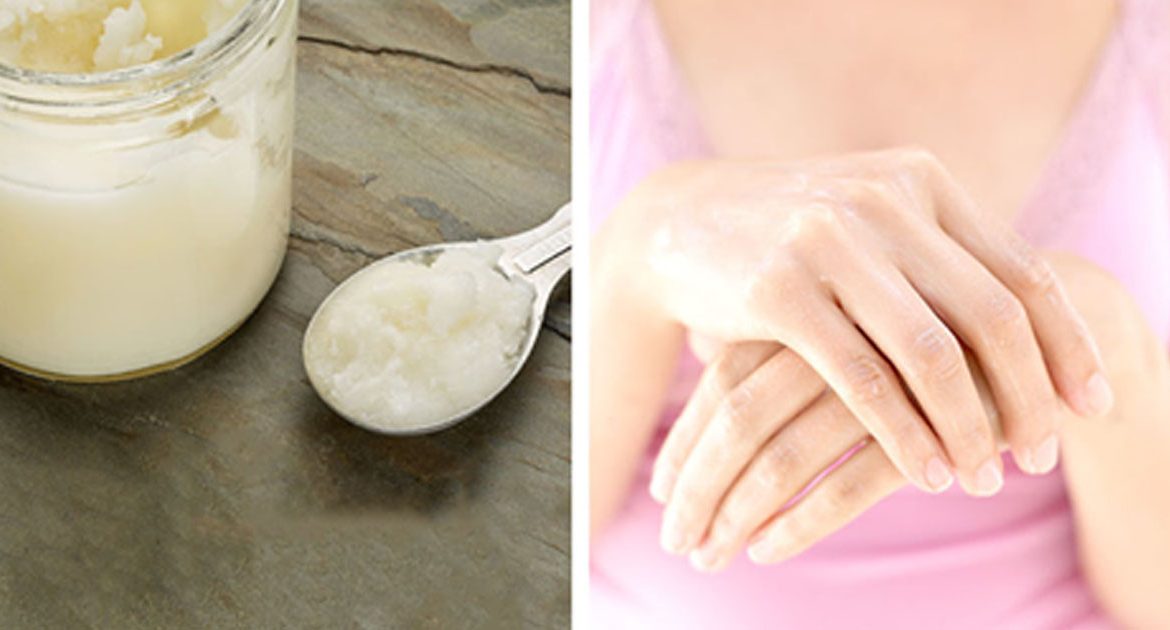If you have ever been to Thailand, you might leave wanting to own your own coconut plantation because so many products have coconut in them these days.
- Coconut water
- Coconut oil
- Shredded coconut
- Coconut milk
- Coconut cream
- Coconut flour
- Coconut butter
- Coconut soya sauce (Try it!)
Coconut grows on coconut trees (Cocos nucifera). These trees are in the subfamily Cocoideae of the palm family (Palmae). Not really nuts, coconuts are actually a stone fruit, also known as a drupe.
You love eating the sweet white flesh of the coconut and drinking its sweet coconut milk, which is good because it is very high in healthy fatty acids.
The type of the coconut and its oil processing determine the fat composition of coconut oil. About 90 percent of coconut oil is made up of medium-chain saturated fatty acids, with the rest being polyunsaturated fatty acids and monounsaturated fat.
Research shows that the unsaturated fats in coconut oil help to lower LDL cholesterol, your bad cholesterol, and raise HDL, the good cholesterol.
HDL cholesterol is called the «good» cholesterol because it flows through the bloodstream, linking to bad cholesterol and reducing heart disease risk by transporting the LDL to the liver for reprocessing. HDL also cleans inner walls of blood vessels and keeps them healthy. Healthy blood vessels resist atherosclerosis, a cause of heart attacks and stroke.
These helpful unsaturated fats are not just found in coconuts, but also in other healthy foods like fish, seeds, nuts and oils derived from plants. They are also in salmon, avocados, olives, trout, herring and walnuts. Soybean, canola, olive, sunflower, safflower and corn oils have these unsaturated fats, too. You likely recognize many of these foods as ones you have been told to enjoy for their healthy qualities. Medium chain fatty acids are what intrigue scientists, even more, when looking at the positive qualities of coconut oil.
Why are medium chain fatty acids so great for you?
Medium-chain saturated fatty acids, also known as MCFAs, digest well and are easily absorbed. Your body uses these fatty acids for all they are worth. MCFAs freely cross the blood-brain barrier in an unbound form, meaning the brain uses these fatty acids for energy and better neurological health.
Even better, virgin unrefined coconut oil is easy to afford. It tastes great and is all natural. Coconut oil also:
- Prevents proliferation of cancer cells while helping the immune system
- Reduces inflammation in the body
- Fights microbes, infection, bacteria, yeast, viruses, fungi, protozoa, and parasites
- Protects your body against damaging free-radicals
- Is easily digested and makes vitamins A, D, E and K from fats more easily useable by the body
- Is non-toxic
Coconut Oils for Bath and Body
Coconut oil works well within natural remedies for aging and personal care. Below are some great ways you can use coconut oil:
- To fight hair loss: Mix coconut oil with rosemary, lavender, cedarwood, thyme, Jojoba oil, grapeseed oil and a dash of cayenne pepper. Apply before bed two or three times daily to areas of hair loss and massage into the skin. This concoction supports cell regrowth.
- To fade age spots also called liver spots: Apply the oil directly on your skin where age spots exist. Over time and with repeated use, those age spots will fade away!
- As after shave: Coconut oil has healing effects to help the skin recover from shaving without clogging your pores. It works great for razor burn.
- As lip balm for softening and sun protection: Coconut oil helps lips soften and has an SPF of 4, for light sun protection.
- As deodorant: Combine coconut oil with cornstarch/arrowroot powder and baking soda for a natural deodorant.
- As a body scrub: Mix the oil with rock salt. Rub all over your body and rinse well. It will leave your skin silky smooth. You can add scented essential oils for fragrance.
- To stop dandruff flakes: Rub into your scalp to balance your skin’s moisture and relieve dandruff. Can also be used to control your body’s oil secretions on the scalp.
- As a wrinkle reducer and prevention: Rub onto your wrinkles and sagging skin. Coconut oil strengthens connective tissues and helps you look younger.
- To heal bruises and reduce swelling and redness: Apply directly to the injured area.
- To alleviate cradle cap: For babies with dry skin flakes from their scalp, coconut oil rubbed onto baby’s scalp each day will nourish dry skin.
- For burn healing, to prevent scarring: Apply immediately to the site of the burn and repeat several times daily until healed.
- To stop bug bite itching and burning: Apply directly to bite area. The oil will also help in the healing process.
- For skin conditions: Psoriasis, dermatitis, eczema and other skin conditions can be relieved using coconut oil.
- For stretch marks: While it will not necessarily cure stretch marks, it helps nourish damaged skin.
- As a salve for diaper rash: All natural and safe for cloth diapers, coconut oil is gentle on baby’s delicate skin.
- As a moisturizer: Applied all over the body, neck and face, coconut oil does not contain water to dry your skin out, unlike most body lotions.
- Before shaving: As a pre-shaving skin prep, coconut oil protects skin from razor damage.
- For healing: Coconut forms a thin layer over scrapes and cuts, protecting them from dust, viruses and bacteria. It speeds up the healing process and smells better than other wound care creams.
- As eye cream: Applied under the eyes and on lids, coconut oil reduces puffiness, wrinkles, and bags.
- For tattoo healing and maintenance: Use a tattoo moisturizer to help heal new tattoos and keep the pigment from fading in existing ones. Also decreases the chances of infection.
- As soap and face wash: Coconut oil mixed with olive, almond, castor and avocado oils can be used in place of facial soap. Rub oil on a damp face and leave on skin for two minutes. Rinse and dab dry.
- For hair deep conditioning: Apply a teaspoon of coconut oil to the ends of your hair, distributing the rest with a comb or your fingers. To deep treat, rub into scalp and work through all the way to the tips. Wear a shower cap for leave-in treatment, to ensure it does not transfer to bed linens while you sleep.
- For swimmer’s ear: Mix with garlic oil and use a couple of drops for about 10 minutes in the affected ear. Repeat two to three times per day.
- As nipple cream: To nourish dry, sore or cracked nipples, apply coconut oil to a cotton ball and moisturize between breastfeedings or after chafing from running.
- For fun in the sun: To relieve a sunburn, rub coconut oil into affected areas. Although it only has an SPF of 4, coconut oil also provides light sun protection.
- To treat acne: For people with an oily T-zone or overall oily skin, use a pea-sized amount alone or beneath makeup to reduce stimulation of the oil glands.
- As hair gel and defrizzer: Rub some coconut oil between your palms. Finger comb through hair from scalp to ends or scrunch into your hair.
- For removal of makeup: Using a cotton swab, dab a small amount of coconut onto makeup and gently wipe to remove. Works great!
- For sexual lubricant: Coconut is an all natural substitution for your chemical lubricants. It is not compatible with latex, however. So do not use it with condoms!
- As massage oil: Used as a massage oil, you will feel and smell like you are on vacation on tropical islands.
Coconut Oil for Your Best Health
Coconut is not just great to keep you looking your best. It is also useful for general health and wellness. Some of those uses include:
31. For breastfeeding: To enrich your milk supply, consume 3-1/2 tablespoons of coconut oil each day.
32. For fitness: Coconut oil stimulates your metabolism, improves energy, stimulates metabolism and enhances thyroid function to decrease unwanted fat while building muscle.
33. For bones and teeth: As an aid in calcium and magnesium absorption, coconut oil leads to better bone and teeth development.
34. For climate-related nosebleeds: Using coconut oil rubbed inside each nostril helps prevent extreme weather related drying and cracking of mucus membranes in the nose, also preventing nosebleeds.
35. For better gum health: Coconut oil used with baking soda improves gum health when used for brushing teeth.
36. For a sharper, more productive mind: Medium chain triglycerides in coconut oil freely pass from blood to brain, energizing cognition.
37. For lung function: Coconut oil increases the fluidity of cell surfaces.
38. For insulin support: Coconut oil improves insulin secretion and blood glucose utilization, for both diabetics and those with normal blood sugar.
39. For nutrient and vitamin absorption: Coconut oil helps the body absorb and more easily use vitamins A, K, E, and D.
40. For digestion: Fats in coconut oil help control parasites and fungi in your digestive tract that cause indigestion and other issues like irritable bowel syndrome.
41. For weight loss: Coconut oil saturated fats aid weight loss and craving control.
42. To soothe nausea: Coconut oil rubbed inside the wrist and on the forearm can soothe an upset stomach.
Coconut Oil for Health Conditions
Consumed coconut oil is helpful in preventing, relieving and even treating health issues. It is known to help body and mind, boosting the immune system and helping with mental clarity. Some of the health conditions coconut oil is beneficial for include:
- Indigestion and acid reflux, when taken after eating
- Adrenal fatigue and chronic fatigue
- Dry, flaky skin caused by poor oil intake
- Diabetes, for stability of blood sugar and help with cravings
- Seasonal hay fever and allergies
- Colds and influenza, as an anti-inflammatory and anti-microbial agent
- Hemorrhoids, either externally or internally applied
- Thrush
- Thyroid function, regulating and stabilizing
- Alzheimer’s and dementia
- Autism
- Epilepsy, for reduction of seizures
- Asthma, in both adults and children
- Hot flashes
- Jaundice
- Boils and cysts
- Liver disease
- Lung disease
- Urinary tract infections
- Pancreatitis
- Kidney disease and stones, dissolving small stones
- Menstrual cramps and heavy bleeding
- Gallbladder disease, helping to increase bile flow (may also cause gallstones)
- Constipation, inflammatory bowel disease, irritable bowel syndrome, intestinal infections
- Cystic fibrosis and bronchial infections
- High cholesterol, by improving HDL levels
- Migraines, when taken regularly
- Cancer, as contributing to prevention of colon and breast cancers
- Heart disease
- Stomach ulcers, by limiting h.pylori growth and soothing stomach lining
- Malnutrition
- Poor circulation or edema, when coconut oil is applied to skin in light circular strokes toward the heart
- Prostate enlargement, as part of BPH, benign prostatic hyperplasia
- Mild depression and cognitive disease, when used in conjunction with cognitive behavioral therapy, fish oil, and other treatment methods
- Gas, due to imbalance of intestinal bacteria
- Tooth decay and periodontal disease
- Coconut Oil Topically Applied
When applied topically, coconut oil has been shown to aid, cure or relieve the following health conditions:
- Athlete’s Foot
- Head lice
- Acne
- Pollen allergies and hay fever, when rubbed inside nostrils
- Boils and cysts
- Sore muscles and back pain
- Ear infection, when coconut oil is mixed with garlic oil and a few drops are placed in ear twice daily
- Toenail fungus
- Congested nasal passages or chest, when coconut oil is rubbed on the chest and under the nose
- Cellulite
- Gum disease, canker sores, gingivitis, when used as a toothpaste with baking soda or rubbed on gums
- Hives, to reduce itch and swelling
- Herpes, when applied to skin and taken internally
- Genital warts, when applied to skin for over six months
- Pink eye, when applied in and around the eye
- Circumcision, to aid in healing
Coconut Oil for Pet Care
When a teaspoon is added to your dog or cat’s water bowl each day, they will experience better general wellness with a sleeker, glossier and deodorized coat. Your veterinarian can make specific recommendations and provide more advice based on your specific pet. The typical dosage of coconut oil is 1/4 teaspoon twice daily for each 10 pounds of your pet’s body weight for prevention and treatment of the following conditions:
- Digestive disorders, coconut oil can aid in healing
- Hairballs, elimination and for coughing
- Skin conditions, such as contact dermatitis, flea allergies, eczema and itchy skin
- Arthritis and ligament problems
- Wound, cut, hot spot, bite, sting, dry skin and dry hair disinfection and healing
- Diabetes control and prevention
- Weight reduction and increase of energy
- Thyroid disorders, by promoting normal thyroid functioning
- Low energy in dogs, as a means of increasing energy
- Brain lesions, by decreasing amyloid protein buildup
- Yeast and fungal infections, including candida
- Allergic reactions
- Bad breath in dogs
Coconut Oil’s Other Uses
Good for more than personal health and pet wellness, coconut oil can also come in handy around the house. You may be surprised by some of its convenient uses, including:
- Removal of chewing gum from hair: Rub coconut oil over the chewing gum, leaving in for 30 minutes, then rolling the chewing gum between fingers to easily remove
- Removal of other sticky goo from surfaces or textures: Mix coconut oil with equal parts baking soda, creating a paste. Apply the paste to the sticky goo, letting it sit for a minute. Scrub off with the rough textured side of a sponge or an old toothbrush.
- Oiling of wood bowls and cutting boards
- Polishing of bronze, using a cotton towel
- Repelling of insects, when mixed with peppermint oil and rubbed onto exposed skin
- Cleaning and moisturizing of leather
- Polishing of furniture: Mix coconut oil with a little lemon juice, making sure to test a small area of the furniture to ensure it works as desired
- Seasoning of cookware
- Making of soap: Use coconut oil as one of the fats in your soap recipe
Liked Video this article with your friends and family!





